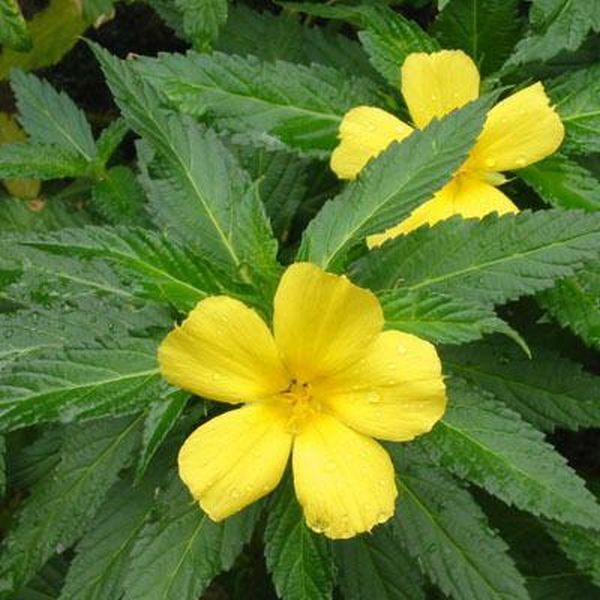Damiana is a wild shrub that grows in Mexico, Central America, and the West Indies. The leaf and stem are used to make medicine. Historically, it was used mostly to increase sexual desire (as an aphrodisiac).
Damiana has been used in alternative medicine to improve mental function, or to treat headache, depression, upset stomach, constipation, or bedwetting. Damiana has also been used as an “aphrodisiac” to improve sexual satisfaction or to help with sexual problems. However, these uses have not been proven with research. Damiana may have been combined with other plants or extracts in a specific preparation to treat these conditions.
Damiana was admitted into the first edition of the National Formulary (NF) in 1888 as an elixir and fluid extract. However, it never made it into the US Pharmacopeia and the elixir finally was dropped from the NF in 1916. The fluid extract and the crude drug (leaves) were listed in the NF until 1947. Although some commercial companies continued to sell it to the American market, damiana had almost disappeared until the 1960s “hippy” movement brought it back into popularity.
Early research suggests that taking a specific combination product containing damiana, L-arginine, American ginseng, Panax ginseng, ginkgo, vitamins, and minerals might improve sexual satisfaction, increase orgasm frequency, and reduce vaginal dryness in women with sexual problems who are interested in improving their sex lives.
Early research suggests that taking a specific combination product containing damiana, guarana, and yerba mate might reduce body weight in people who are overweight.
Today, damiana has found its way into a number of herbal OTC products, in particular those claiming to induce a legal herbal “high.”
In the Caribbean, damiana leaves are boiled in water and the vapors inhaled for the relief of headaches. Teas are said to aid in the control of bed wetting. No substantive data is available to support the aphrodisiac effects of damiana. Although it has been postulated that the plant may contain the central nervous system stimulant caffeine, the aphrodisiac effect has not been attributed to any specific components. The volatile oil in damiana might be sufficiently irritating to the urethral mucous membranes to account for its so-called aphrodisiac effects.
Despite containing a complex mixture of components, there is no evidence to support claims for a hallucinogenic effect.
There are no recent clinical studies of damiana that provide a basis for dosage recommendations, though it has been studied in combination with other agents. Classical dosage of the leaf was 2 g.
Post time: Jul-31-2020
